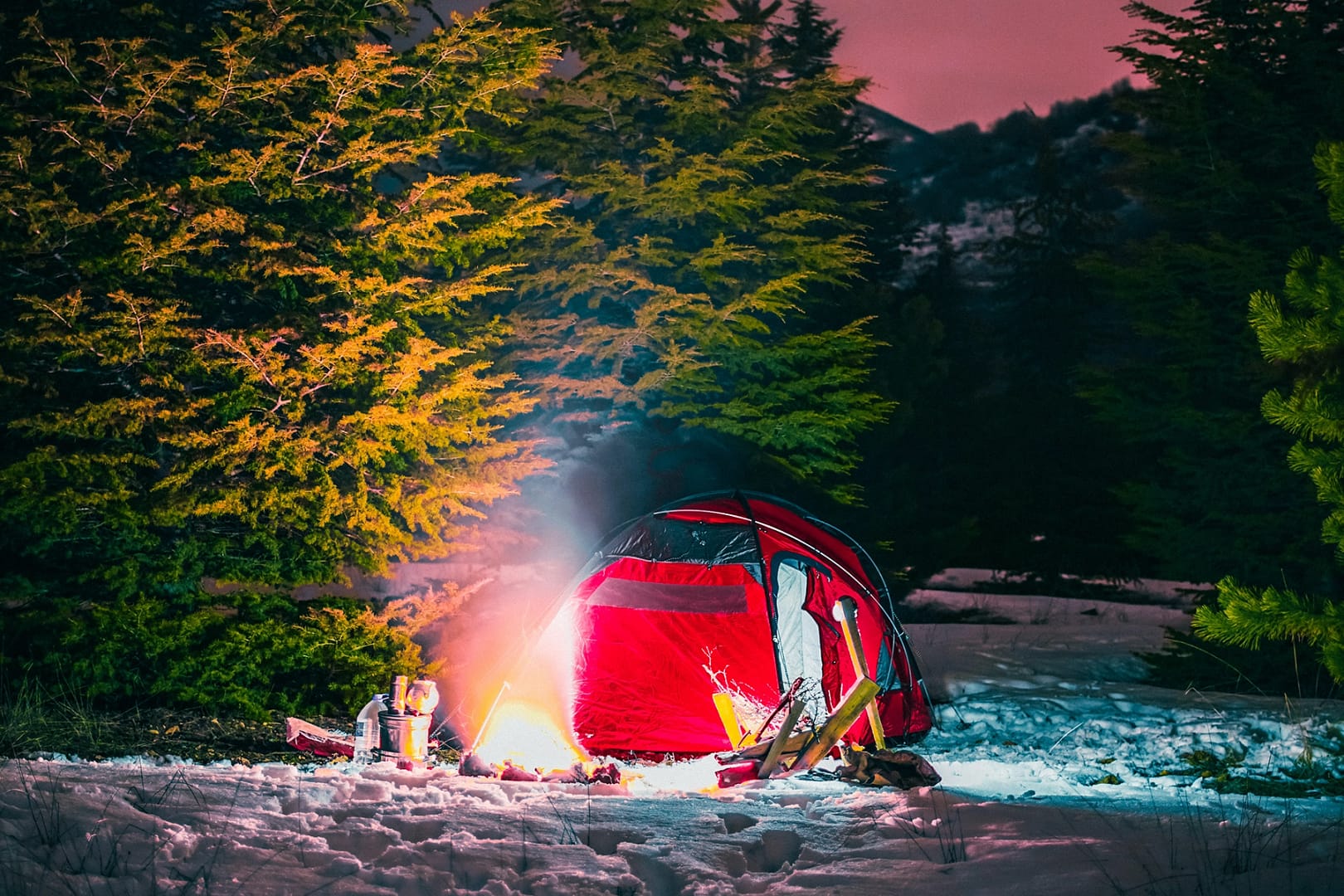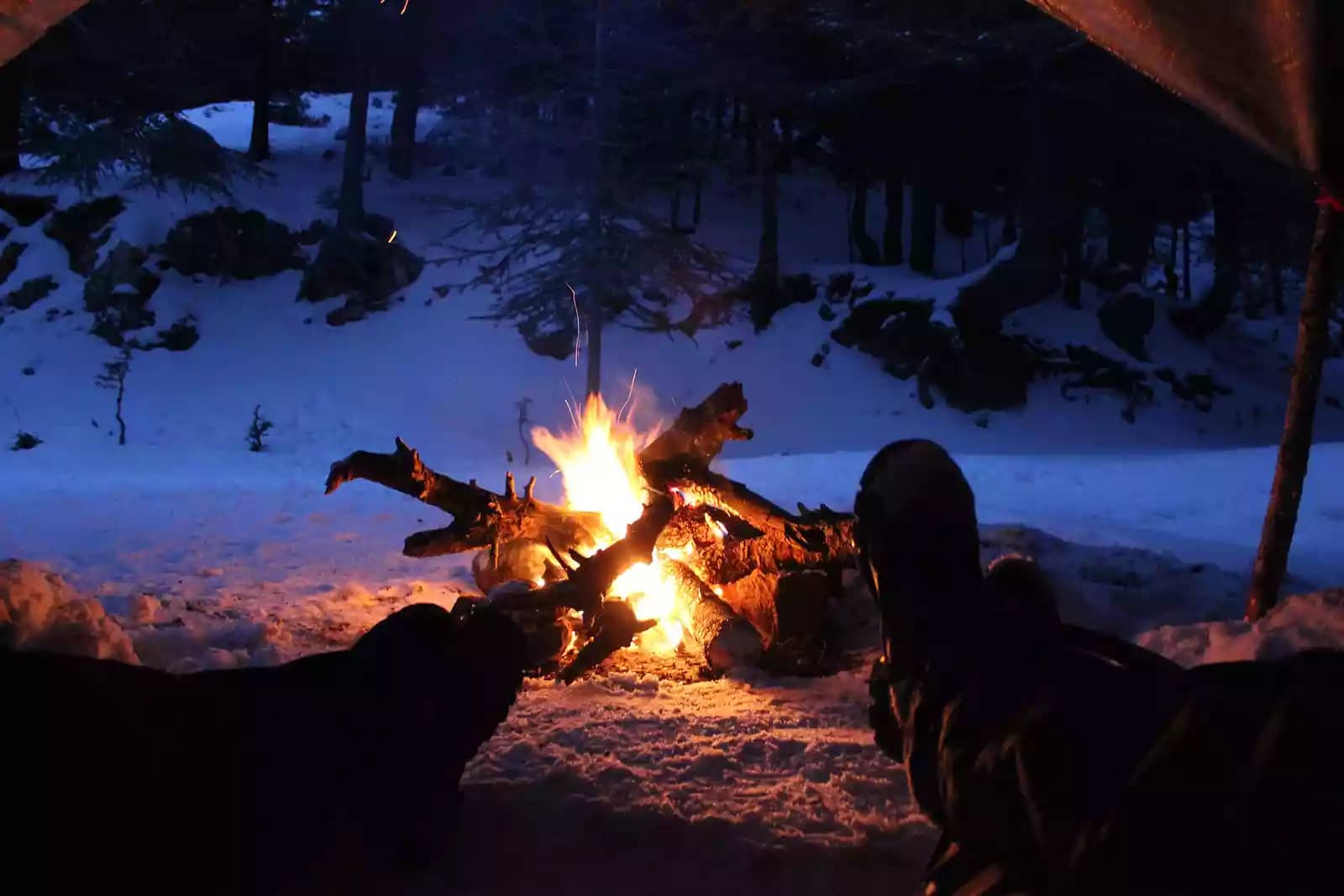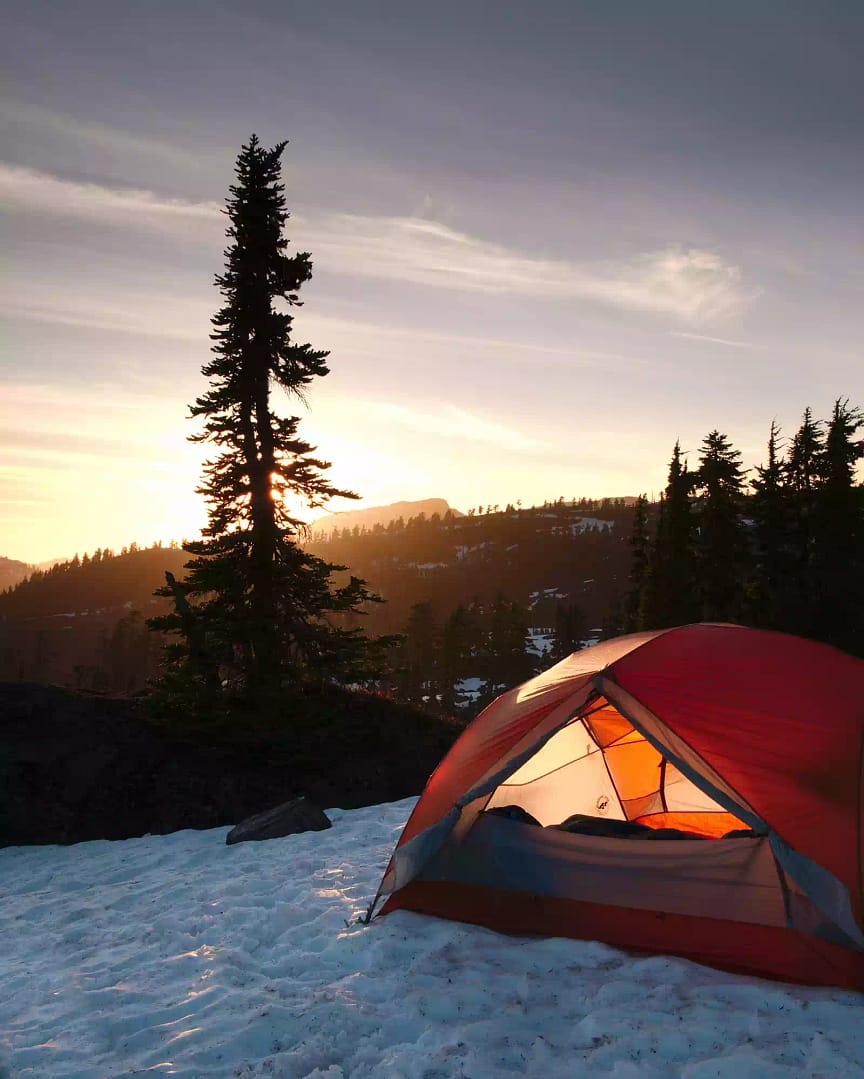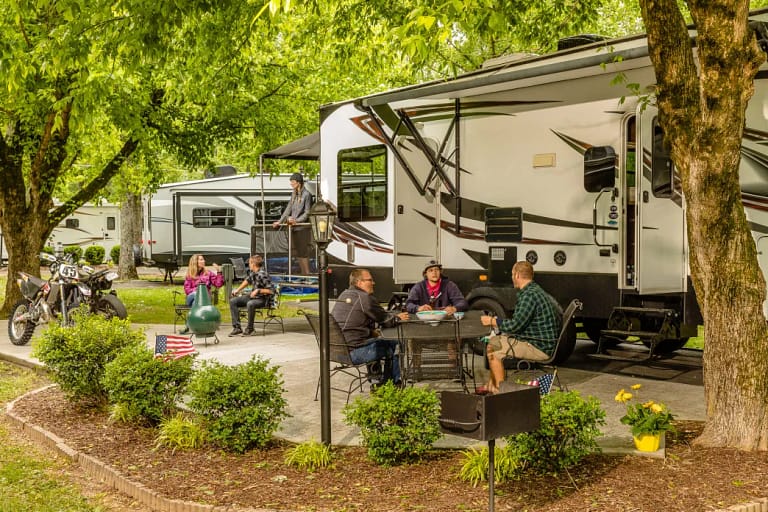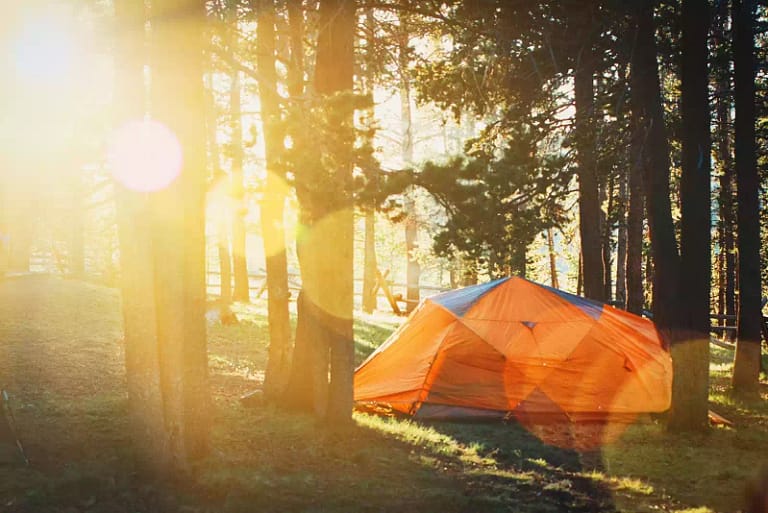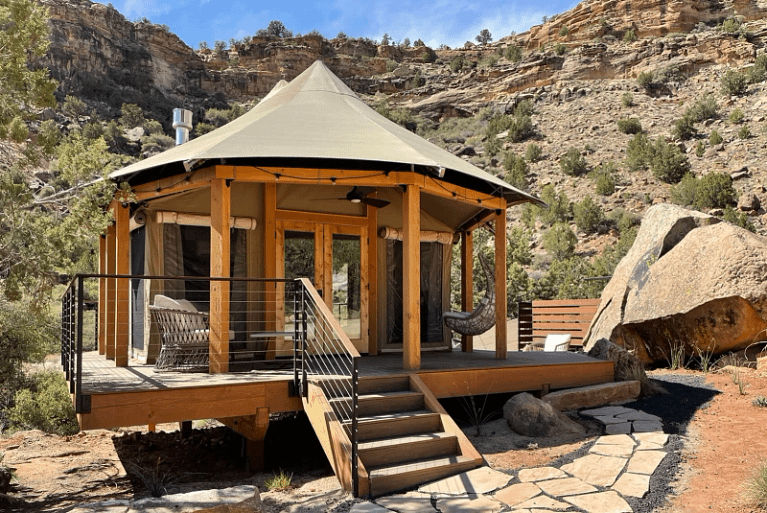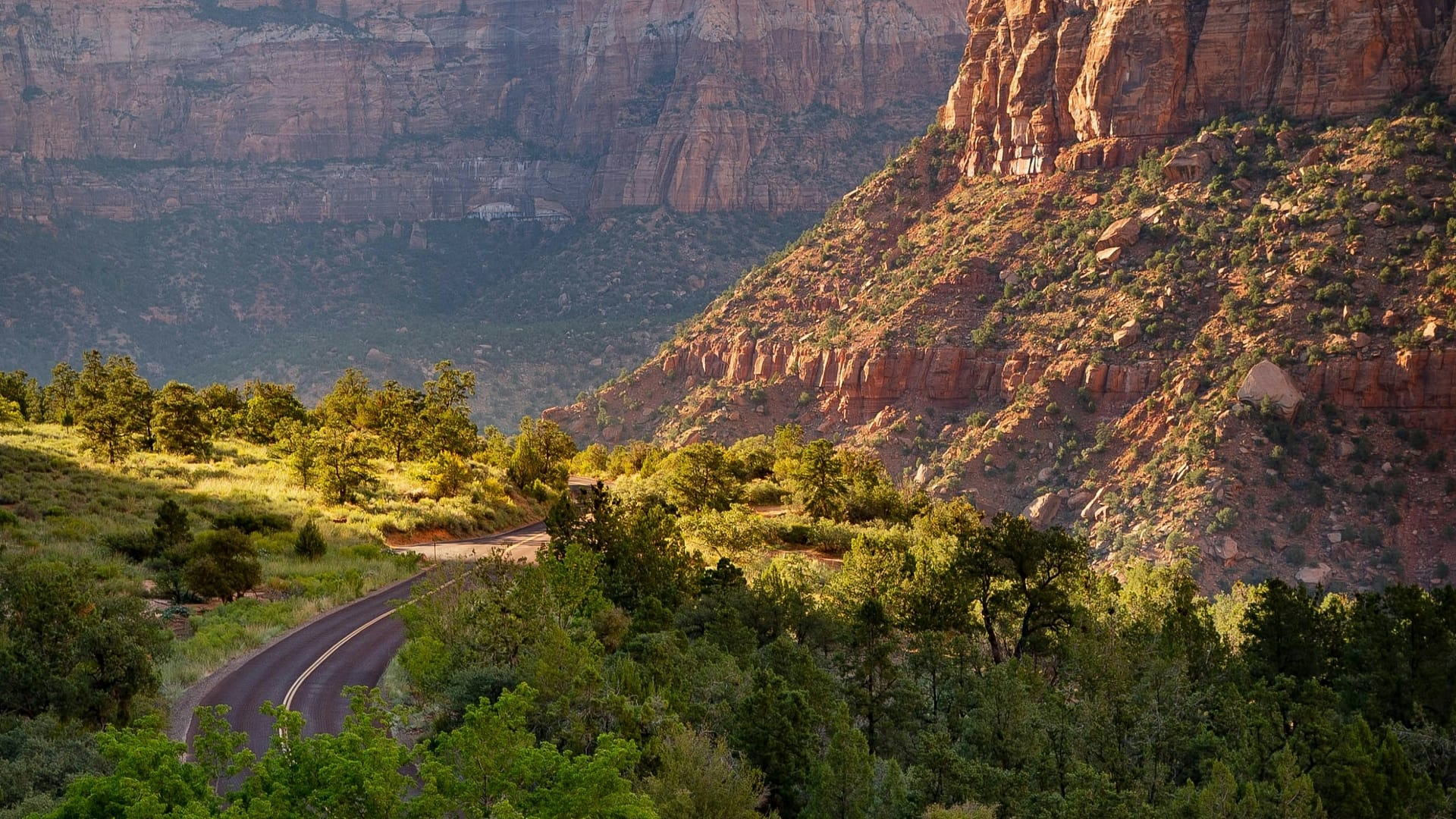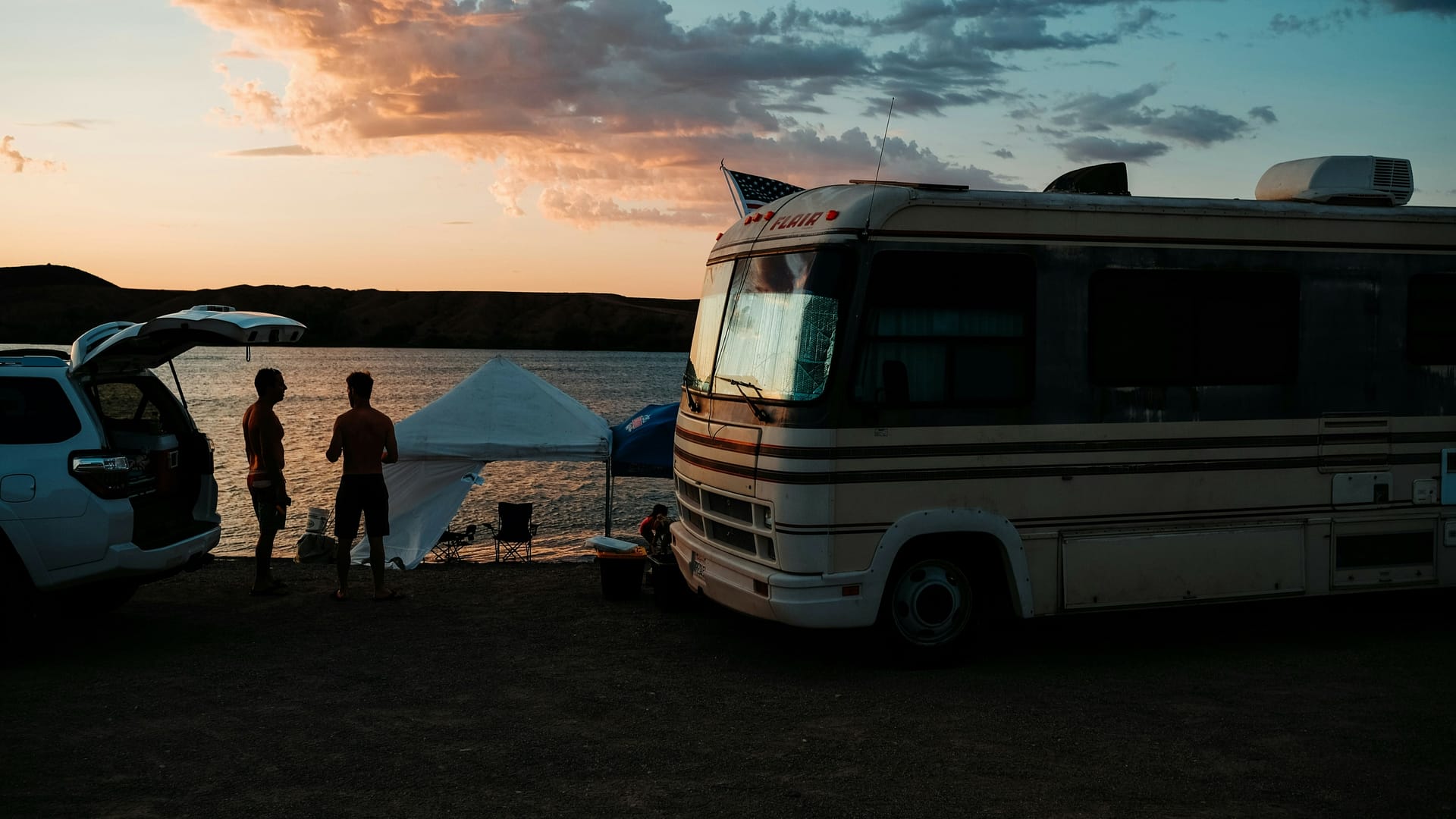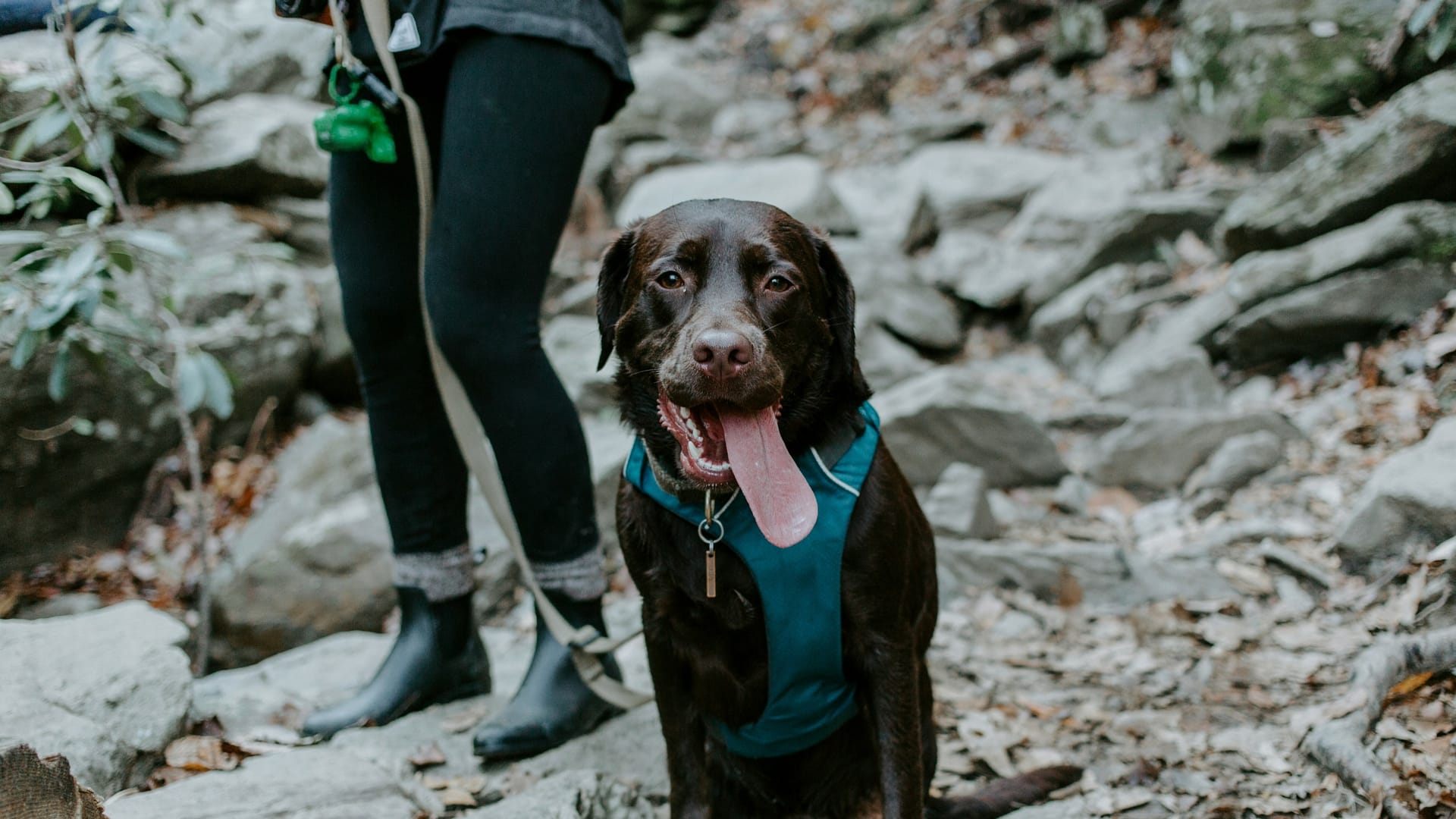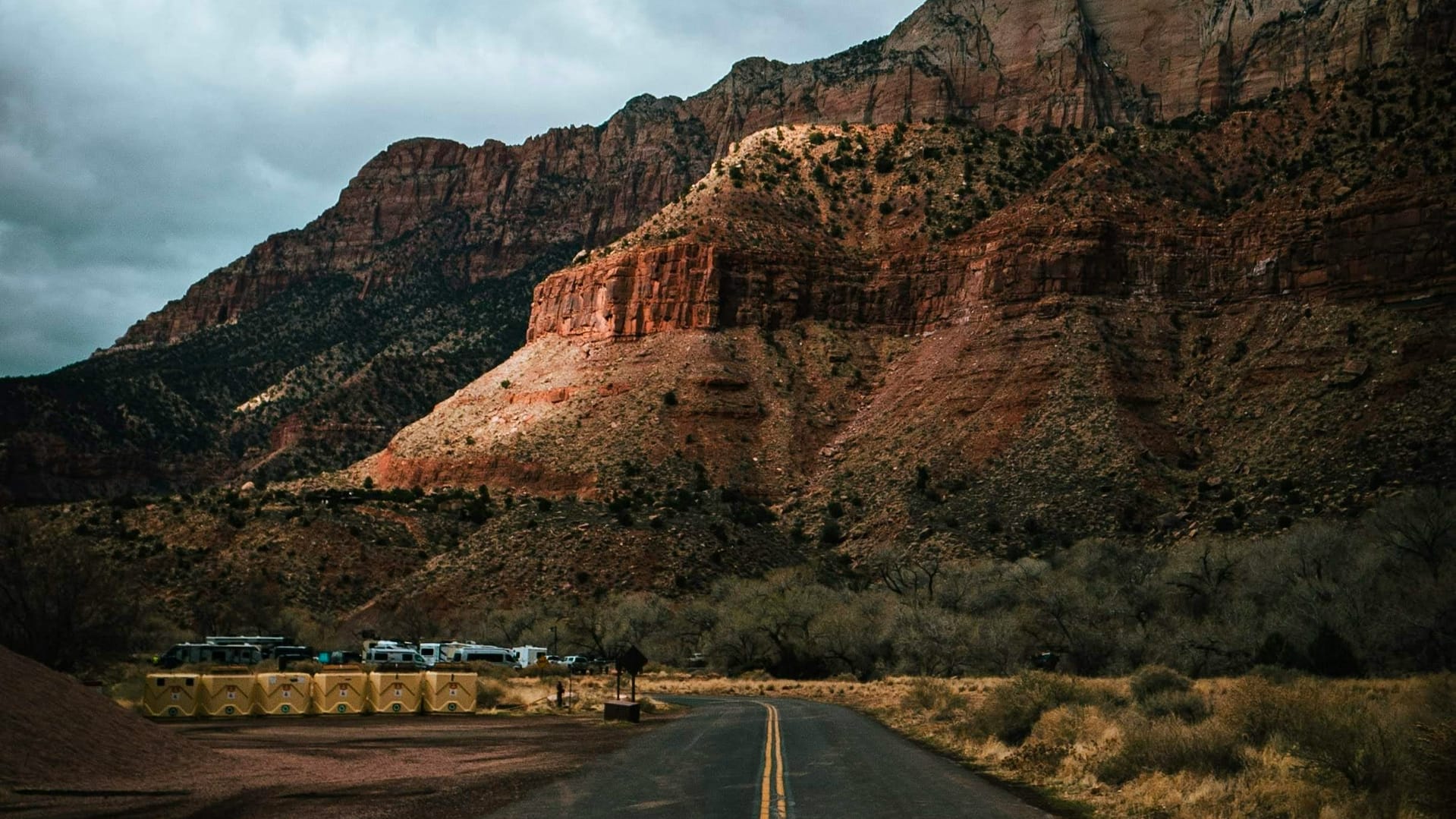Most outdoorsy types agree that the perfect conditions for camping are not too hot, not too cold, not too windy, and not at all wet. In short, the opposite of winter. Yet, there are some campers who think it’s much more fun to have a challenge. Face some fears. Come home with a story to tell about braving the elements. You know who you are — one of those weirdos who doesn’t recoil at the idea of “winter camping” and, in fact, are quite intrigued by it.
To clarify, winter camping involves cold, usually snowy conditions regardless of the time of year. In some regions, you can even go winter camping when it’s technically spring or fall. It’s why you can be winter camping at altitudes of 8,000 feet or more, while others below 5,000 feet on the same mountain on the same day are just enjoying regular camping. Likewise, a camping trip to Florida in January doesn’t count.
Even the most enthusiastic beginners have some trepidation about winter camping. If you don’t… Well, you should! This is an activity that requires some serious preparation, appropriate gear, and a great deal of common sense, i.e., knowing all the do’s and don’ts. It’s not for everyone, but the rewards are immense. Just a few to mention are the absence of crowds, opportunities for super-fun snow sports, and stunning, serene scenery. And no bugs!
By the way, a great way to plan for any camping trip, in any season, is by using BookOutdoors to book your trip.
In this article:
ToggleDo: Ease Yourself into Winter Camping
It can be difficult to imagine the trials of winter camping until you’ve actually done it. Looking at low temperatures on a weather app does not translate to the physical sensation of spending 24 hours a day outdoors at those temperatures. Beginners should therefore ease themselves into winter camping. This could be a shorter, say one-night, winter camping trip, or a shoulder-season trip when the cold isn’t so extreme. An introductory experience will help you decide whether winter camping is for you. It’s also a good way to test out your gear and routine.
Don’t: Be Spontaneous
With winter camping, being spontaneous can be a huge mistake. With fewer services and amenities available, even at developed campgrounds, you must bring everything you could possibly need with you. Have a back-up plan in case the weather gets too rough, and an emergency plan as well. Don’t go winter camping with the idea that you’ll figure things out as you go.
Do: Wear the Right Clothing and Accessories
Forgetting spare socks or an extra layer on a summer camping trip is annoying. On a winter camping trip, it can be life or death. Take your clothing choices seriously, and listen to the experts who all agree that layering is key. These are the essential layers of clothing needed to keep you warm and safe while winter camping:
- Long thermal underwear: You won’t regret it.
- Base layer: A pullover and pants or leggings of merino wool or high-wicking polyester.
- Mid layer: A puffy jacket with down or synthetic fill, or a heavy fleece.
- Outer layer: Pants and a jacket that are fully waterproof and highly breathable. Look for three-layer construction, and appropriate ratings for your activities and winter camping conditions.
- Four-season hiking boots: Well-insulated and sturdy with good traction.
- Hat or balaclava: Wool or synthetic, it should cover your ears and not be itchy.
- Gloves or mittens, and optionally glove liners: Insulated with a waterproof outdoor layer.
- Socks: Thick merino wool or synthetic. Several pairs.
- Sunglasses or ski goggles: Essential for protecting your eyes from UV glare off the snow.
- Waterproof gaiters: For hiking in snow.
Don’t: Wear Cotton
Ever heard the saying “cotton kills”? Yep, those white cotton socks look innocent, but they really could be the death of you! Cotton is absorbent and holds moisture (from sweat or accidental exposure to rain or snow) against the skin, which can quickly rob you of your body heat. Wool and synthetics wick moisture away while continuing to insulate you, making them the materials of choice for winter campers.
Do: Acquire Winter Camping Gear
Three-season camping gear will not always cut it during a winter camping trip. Decent winter gear can be an investment, so look into borrowing or renting some as a beginner. Here are the major items needed for winter camping:
- Four-season tent: Ideally a “bombproof” tent designed for the worst conditions. Alpine versions are lighter and intended for backpacking; basecamp versions are heavier and better for car camping. Also get snow stakes.
- Winter-rated sleeping bag: Down or synthetic, ideally waterproof and mummy-style. The low-temperature rating is key.
- Foam pad: The thicker the better for more warmth as well as comfort.
- Tarp: To cover any gear left outside overnight.
- Shovel: For clearing snow.
- Emergency blanket: Plus avalanche emergency gear, if applicable.
- Tire chains or cables and ice scraper: For your vehicle.
- For RV camping: Bring extra blankets and a space heater.
Don’t: Use a Camping Stove to Heat Your Tent
There are lots of tips for keeping your tent and yourself as warm as possible while winter camping. Using your camping stove as a tent heater is not one of them, given the serious risk of carbon monoxide poisoning.
Many developed campgrounds are open all year-round and are ideal for beginner-friendly winter camping. You can find and book one at BookOutdoors.
Do: Bring Plenty of Food and Fuel
When you’re camping in winter, you have much higher caloric needs than any other time. Bring extra food, focusing on high-calorie snacks and hearty meals. This is one time when it’s perfectly acceptable to keep a spare Snickers in your sleeping bag.
When there’s plenty of snow, many winter campers prefer to melt it instead of bringing in drinking water. To do so, have extra fuel and perhaps a second campstove available. Bring lots of firewood, as it’s hard to find dry deadwood in winter. Keep matches and firestarters in a waterproof bag. A nice big campfire improves any winter camping experience (check local regulations first).
Don’t: Forget to Drink Water
Being cold might make you feel less thirsty, so make a point of drinking water even when you don’t think you need it.
Do: Take Safety Seriously
Winter camping destinations are often located in avalanche-prone mountain areas. Consider taking a course in avalanche safety, and always check avalanche forecasts if that applies to your camping trip.
Learn the symptoms and best ways to deal with frostbite, hypothermia, snow blindness, and other cold-weather risks. Emphasize staying warm at all times, rather than waiting to get cold before you take action.
Leave a detailed itinerary with someone back home or a nearby ranger station.
Don’t: Always Trust the Weather Forecast
Check the weather forecast before and during any winter camping trip, but prepare for the unexpected too. Bring gear and clothing for at least 10 degrees below the predicted low. Also remember that the forecast for weather on a mountain might be for a totally different elevation to your camping destination, and therefore be wildly inaccurate. Don’t follow the forecast for a 5,000-foot location if you’ll be camping at an 8,000-foot or higher elevation.
Do: Try Winter Camping
Yes, winter camping is serious business that requires a sensible approach, a considerable investment in gear, and lots of planning. But it can also be an incredible amount of fun. How else can you combine camping with snowshoeing, cross-country skiing, snow hiking and epic snowball fights?

